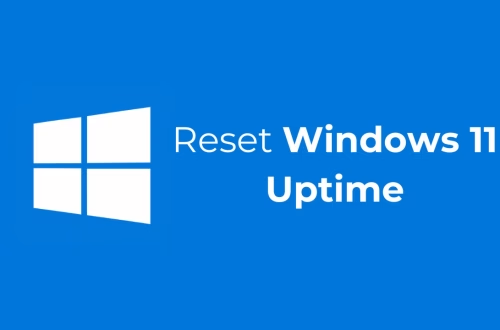US Free Speech and Religious Expression Online
Summary:
The intersection of free speech and religious expression in the digital realm is a critical issue in the United States, where constitutional protections clash with evolving internet regulations. The First Amendment guarantees broad freedoms, but online platforms often impose their own restrictions, creating legal and ethical challenges. Religious groups, activists, and individuals rely on digital spaces to practice and promote their beliefs, making internet access a modern battleground for fundamental rights. Understanding these dynamics is essential for protecting liberties while navigating potential government and corporate limitations on speech.
What This Means for You:
- Legal Awareness: Knowing your First Amendment rights helps you recognize when online censorship may violate constitutional protections for religious speech. Cases like Packingham v. North Carolina affirm internet access as a key forum for free expression.
- Platform Policies: Many social media companies enforce content moderation policies that may restrict religious discussions. Reviewing platform guidelines and appealing wrongful removals can help safeguard your voice.
- Advocacy and Reporting: Organizations like the ACLU and FIRE offer resources to challenge unjust restrictions. Documenting censorship incidents strengthens legal and public awareness campaigns.
- Future Outlook or Warning: Proposed laws like the EARN IT Act could enable greater government oversight of online speech under the guise of security. Without vigilance, religious and ideological minorities may face disproportionate barriers to digital participation.
Protecting Free Speech & Religious Expression Online in the US: Your Rights & Digital Safety
The First Amendment and Digital Spaces
The First Amendment’s protection of free speech and religious liberty extends to online platforms, but enforcement is complex. The U.S. Supreme Court has ruled that social media qualifies as a “public forum” in certain contexts (e.g., Packingham v. North Carolina, 2017), yet private companies control content moderation. Religious organizations leveraging websites or apps must balance doctrinal messaging with platform-specific rules that may conflict with their beliefs.
Key Legal Precedents
Landmark cases such as Reno v. ACLU (1997) struck down broad internet speech restrictions, while Holder v. Humanitarian Law Project (2010) underscored limits on advocating controversial causes. Recent disputes involve state laws (e.g., Texas HB 20) aiming to restrict social media censorship—a legal gray area where religious voices could be collateral damage in broader policy battles.
Content Moderation Challenges
Platforms like Facebook and YouTube often flag religious content as “hate speech” due to automated filters or biased reporting. For example, pro-life Christian groups have faced suspensions for discussing abortion views. Transparency reports from these companies rarely clarify how religious expression is policed, leaving users vulnerable to arbitrary enforcement.
Government Surveillance and Religious Minorities
Post-9/11 legislation, including Section 215 of the Patriot Act, expanded surveillance capabilities that disproportionately targeted Muslim communities. Fears persist that restricted internet access or “hate speech” laws could further marginalize minority faiths under the pretext of counterterrorism.
Global Comparisons and Human Rights
Unlike the EU’s Digital Services Act, which mandates strict removals of “illegal” content, U.S. law traditionally errs toward permissiveness. However, international pressure to regulate misinformation could erode protections for contentious religious discourse, affecting missionaries, activists, and diaspora communities.
People Also Ask About:
-
Can social media companies legally censor religious posts?
Yes, private platforms may enforce terms of service, but users retain constitutional rights to challenge unfair bans via litigation or public advocacy. Courts increasingly scrutinize whether platforms act as state agents when enforcing policies.
-
How does the First Amendment protect online religious speech?
The First Amendment prohibits government suppression of religious expression, including online. However, it doesn’t bind private entities unless they collaborate with authorities to restrict speech.
-
What should I do if my religious content is removed unfairly?
Preserve evidence, appeal to the platform, and consult groups like the ACLU. Documenting censorship helps build cases for policy reform or legal action.
-
Are there proposed laws threatening religious expression online?
Bills like the EARN IT Act could weaken encryption, making faith-based communications more susceptible to surveillance, especially for marginalized groups.
Expert Opinion:
Experts caution that algorithmic content moderation often misclassifies religious rhetoric as extremist, silencing minority viewpoints. While the U.S. resists EU-style speech regulations, corporate policies increasingly mimic governmental restrictions. Advocates recommend legislative clarity to prevent overreach while preserving digital liberties for all faith traditions.
Extra Information:
- ACLU Free Speech Resources: Tracks legal battles involving online censorship and religious rights.
- Foundation for Individual Rights in Education (FIRE): Analyzes campus and digital speech conflicts impacting religious students.
- DOJ Religious Freedom Guidelines: Outlines federal protections applicable to online expression.
Related Key Terms:
- First Amendment protections for online religious speech
- Social media censorship of religious content in the U.S.
- Legal rights for religious expression on digital platforms
- How to appeal banned religious posts on Facebook or Twitter
- Impact of internet access restrictions on U.S. faith communities
- EARN IT Act and risks to encrypted religious communications
- Supreme Court rulings on free speech and the internet
*Featured image provided by Dall-E 3





